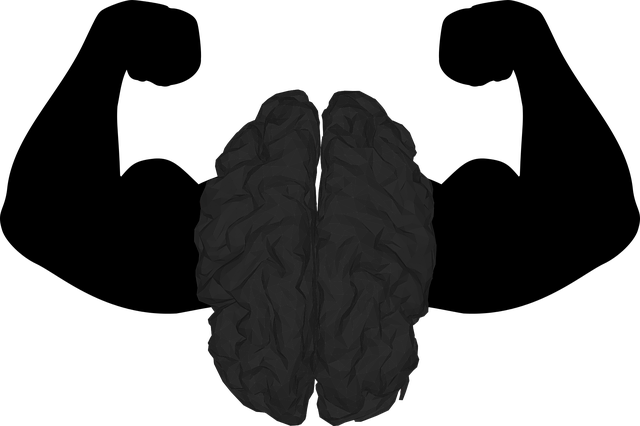Parker Mindfulness Therapy (PMT) offers a holistic and culturally sensitive approach to grief counseling, empowering individuals to navigate loss uniquely. Combining mindfulness practices with traditional therapy, PMT helps clients develop self-care routines, manage stress, and express emotions safely. This method revolutionizes bereavement support, fostering emotional regulation and healing after loss. By addressing specific needs, setting realistic goals, and teaching coping mechanisms, PMT guides individuals through grief stages to rebuild their lives while honoring loved ones.
Loss, grief, and bereavement can profoundly impact an individual’s life. This comprehensive guide delves into these complex emotions, offering a thorough understanding of their effect on mental health. We explore the Parker Mindfulness Therapy Approach, highlighting its role in healing through mindfulness techniques. Recognizing when counseling is necessary and the strategies employed in sessions, this article provides valuable insights for those navigating loss. Additionally, long-term coping strategies are discussed to foster resilience post-bereavement.
- Understanding Loss, Grief and Bereavement: A Comprehensive Overview
- The Role of Mindfulness in Healing: Parker Mindfulness Therapy Approach
- Recognizing the Signs: Identifying When Counseling is Necessary
- Techniques Used in Loss Grief Counseling Sessions
- Building Resilience: Long-term Coping Strategies Post-Bereavement
Understanding Loss, Grief and Bereavement: A Comprehensive Overview

Understanding loss, grief, and bereavement is a profound yet often challenging aspect of human experience. It involves navigating the complex emotions that arise when we lose someone or something significant to us. At Parker Mindfulness Therapy, we recognize that each individual’s journey through grief is unique, shaped by personal history, cultural background, and coping mechanisms.
Grief is not simply a reaction to loss but a process that encompasses a spectrum of feelings, from profound sadness and anger to acceptance and even moments of joy. This multifaceted nature demands a holistic approach to counseling. Our therapists employ evidence-based practices, such as mindfulness techniques, to help clients develop self-care practices tailored to their specific needs. Additionally, we emphasize cultural sensitivity in mental healthcare practice, ensuring that our support is inclusive and respectful of diverse belief systems and traditions related to grief and bereavement. Through our sessions, individuals can explore healthy ways to process their emotions, remember their loved ones, and gradually integrate into a new chapter of life—all while learning effective stress management skills, which are often integral to the healing process, as demonstrated by successful Stress Management Workshops Organization programs.
The Role of Mindfulness in Healing: Parker Mindfulness Therapy Approach

In the realm of loss, grief, and bereavement counseling, the Parker Mindfulness Therapy (PMT) approach has emerged as a game-changer. This innovative therapy utilizes mindfulness techniques to help individuals navigate their emotional landscapes after experiencing significant loss. By fostering present-moment awareness, PMT encourages folks to embrace their feelings without judgment, thereby revolutionizing how they cope with grief. In today’s digital era, where mental health policy analysis and advocacy is increasingly vital, this approach can significantly enhance mood management strategies for those dealing with bereavement.
The core principle of PMT lies in its ability to create a safe space for individuals to explore their emotions without the pressure of performance or judgment. This process facilitates self-acceptance and emotional regulation, crucial elements in healing from loss. Unlike traditional therapy models that might focus on talking through past events, PMT guides clients to engage with their senses and thoughts in the present, allowing them to let go of stubborn emotions like anger or guilt associated with bereavement. By integrating mindfulness into grief counseling, Parker Mindfulness Therapy offers a holistic approach that can help folks transform their relationships with loss and find healing in their daily lives.
Recognizing the Signs: Identifying When Counseling is Necessary

Recognizing when it’s time to seek counseling is a crucial step in managing loss, grief, and bereavement. Many individuals experience a range of emotions after a significant loss, from sadness and anger to confusion and isolation. These feelings are normal and part of the healing process, but if they persist or significantly impact daily functioning, professional support may be required. Signs that counseling could be beneficial include prolonged periods of intense grief, difficulty performing everyday tasks, disturbances in sleep or appetite, and a sense of detachment from loved ones or activities once enjoyed.
At Parker Mindfulness Therapy, we understand the importance of addressing these complex emotions. Our trained therapists employ effective communication strategies to create a safe space for clients to express their feelings. By integrating cultural sensitivity into mental healthcare practice, we ensure that each individual receives tailored support, considering unique personal and cultural backgrounds. Whether it’s helping someone navigate the stages of grief or providing trauma support services, our goal is to guide individuals towards healing and restoration.
Techniques Used in Loss Grief Counseling Sessions

In loss grief counseling sessions, a range of therapeutic techniques are employed to help individuals navigate their emotions and heal. One prominent approach is Parker Mindfulness Therapy, which encourages clients to focus on the present moment and develop a non-judgmental awareness of their thoughts and feelings related to the loss. This therapy fosters self-compassion and helps individuals accept their grief without suppressing or avoiding it.
Additionally, counseling sessions often incorporate communication strategies to promote open expression of emotions. By creating a safe and supportive environment, counselors enable clients to share their stories, memories, and fears. This process can lead to significant anxiety relief as individuals find understanding and validation for their unique grieving experiences. Moreover, burnout prevention is addressed through setting realistic goals, teaching coping mechanisms, and emphasizing the importance of self-care during this challenging period.
Building Resilience: Long-term Coping Strategies Post-Bereavement

After experiencing loss and grief, individuals often face a long journey towards healing and rebuilding their lives. This is where long-term coping strategies come into play, offering valuable tools for navigating the complexities of bereavement. Through Parker Mindfulness Therapy, clients learn to cultivate resilience—a key factor in managing emotional pain effectively. By integrating mindfulness practices, individuals can develop enhanced self-awareness, enabling them to understand and regulate their emotions better.
In addition to mindfulness therapy, building social connections and learning effective communication skills through Social Skills Training can significantly aid in the healing process. This involves creating a supportive network that provides comfort and understanding during challenging times. Moreover, mental health professionals should be equipped with risk assessment tools to identify potential signs of complex grief or depression, ensuring early intervention. Implementing Stress Reduction Methods further contributes to resilience-building, teaching individuals how to manage stress levels and foster emotional well-being in the long term.
In navigating the complex journey of loss, grief, and bereavement, seeking professional counseling can be transformative. By incorporating techniques from the Parker Mindfulness Therapy Approach, individuals can learn to embrace mindfulness as a powerful tool for healing. This holistic approach not only addresses immediate emotional needs but also equips people with long-term coping strategies to build resilience post-bereavement. Understanding when to seek counseling and recognizing the various techniques employed, such as those discussed in this article, empowers folks to actively participate in their healing process and foster a sense of tranquility amidst life’s challenges.














